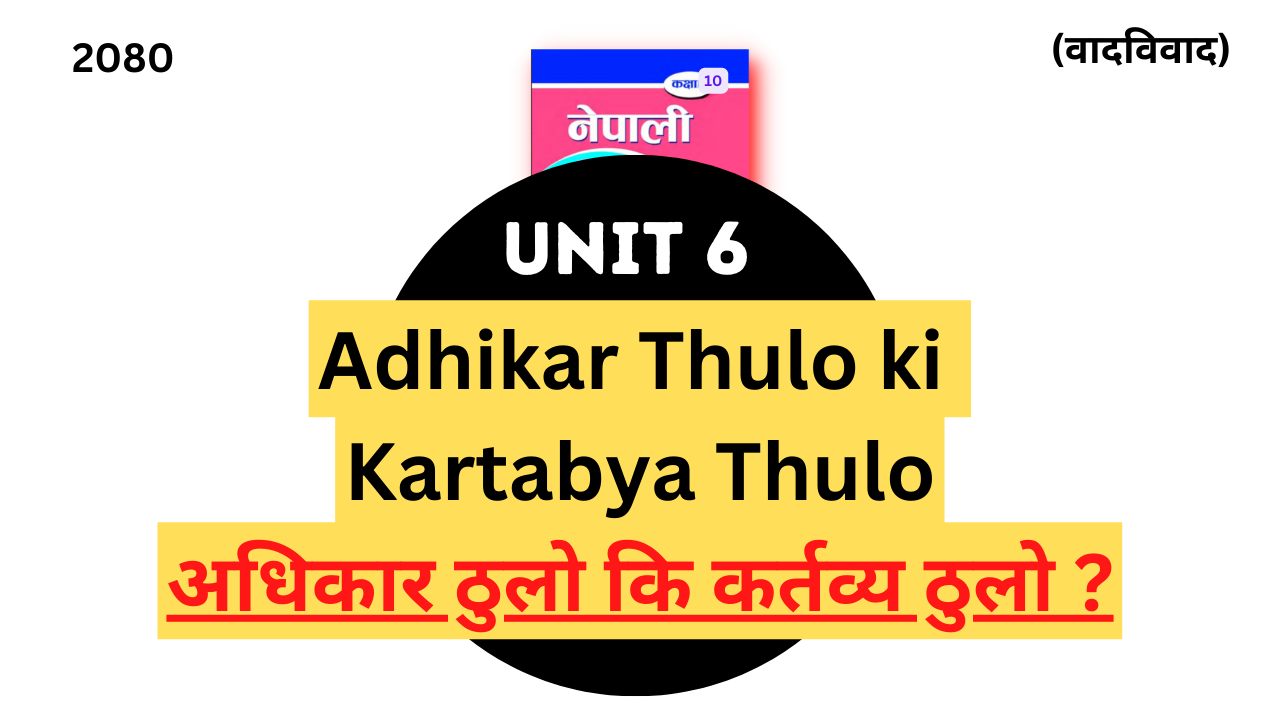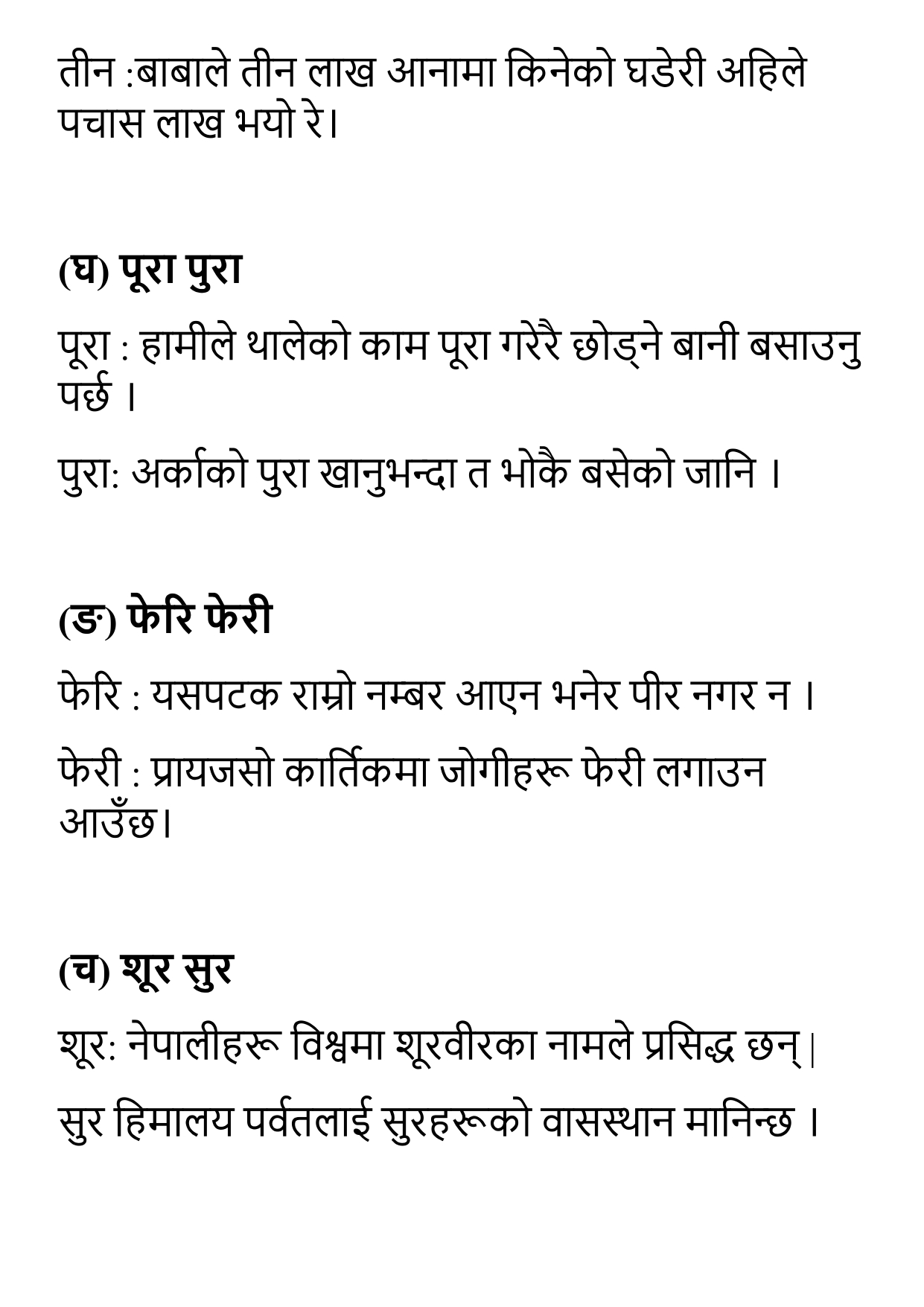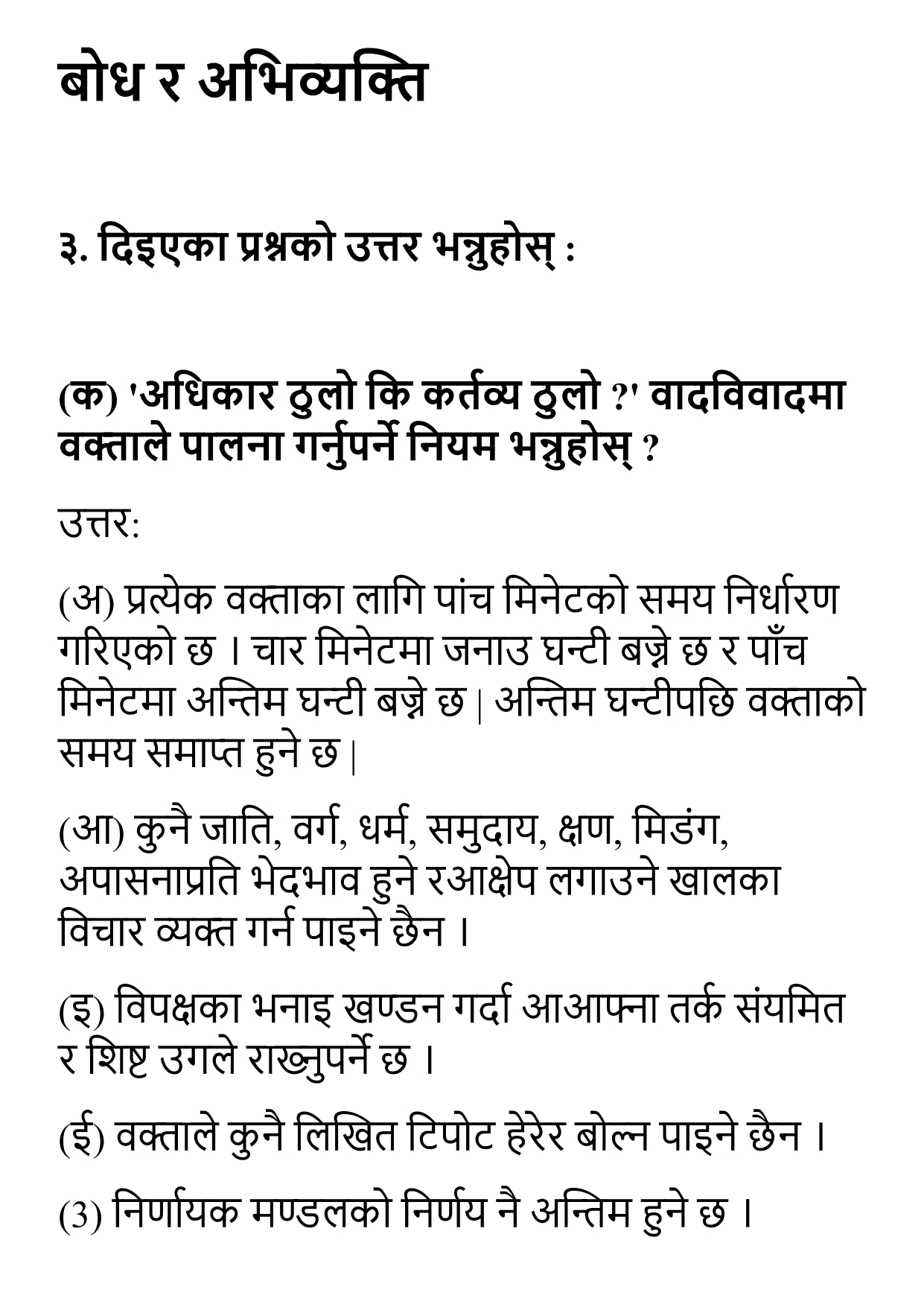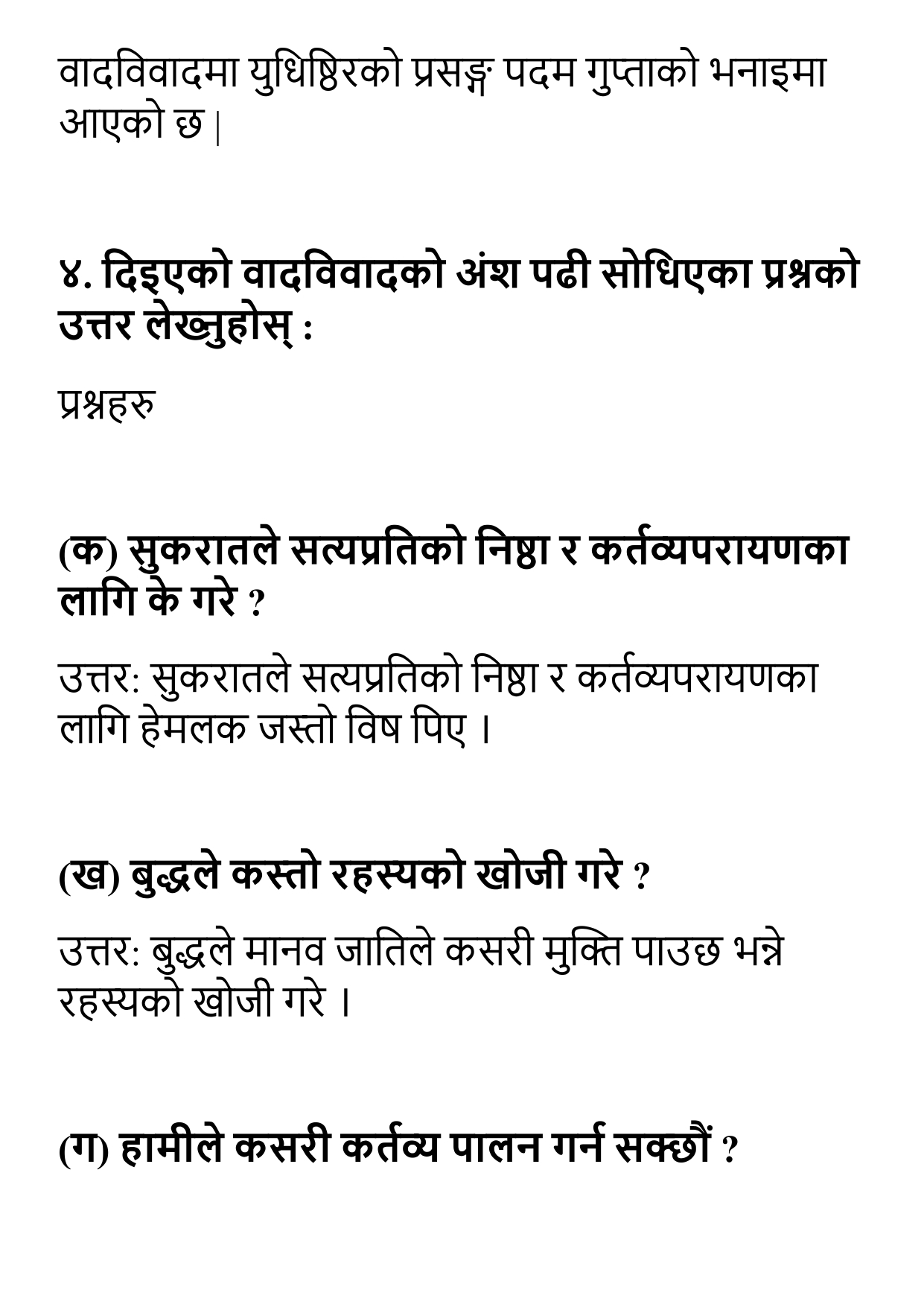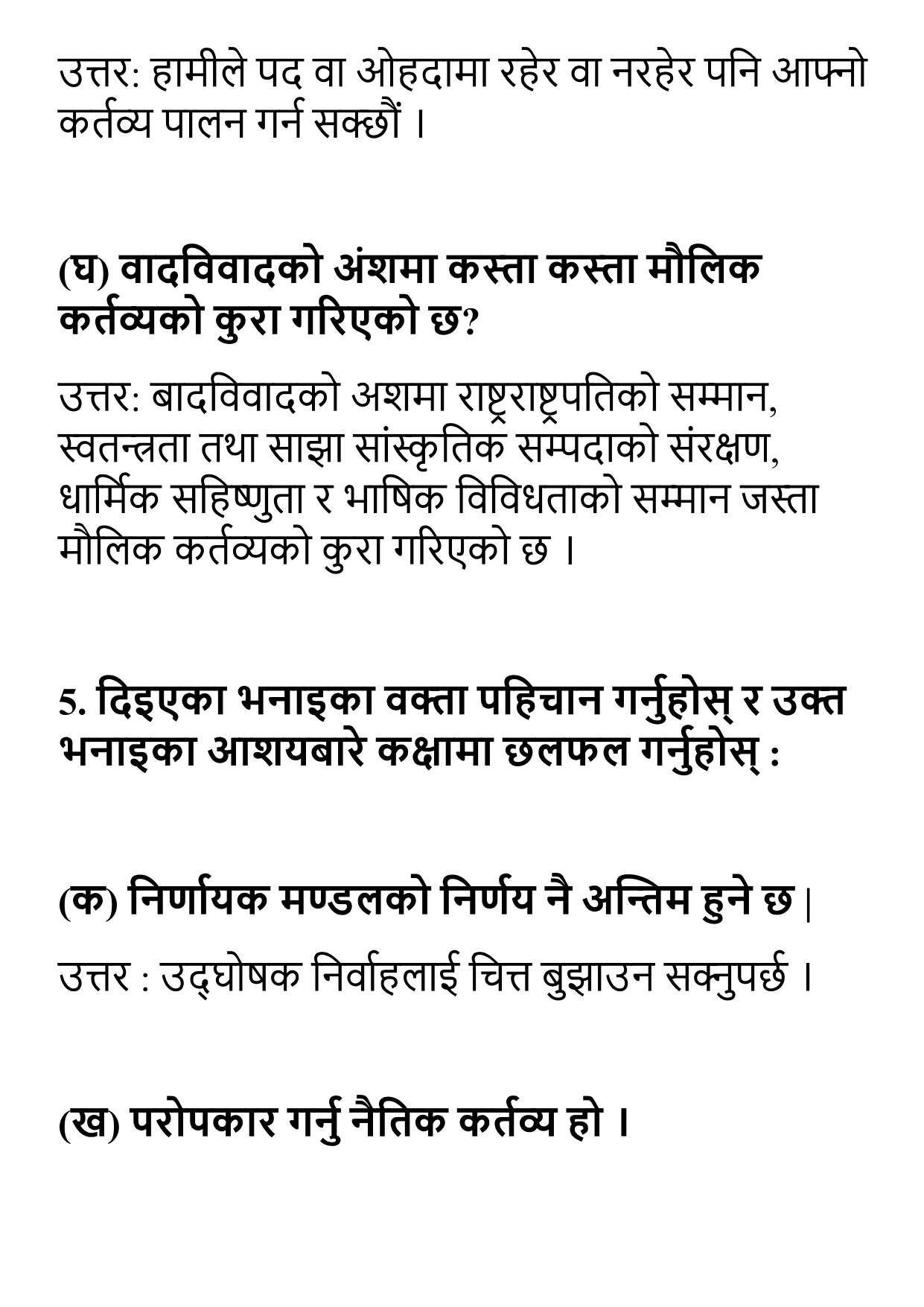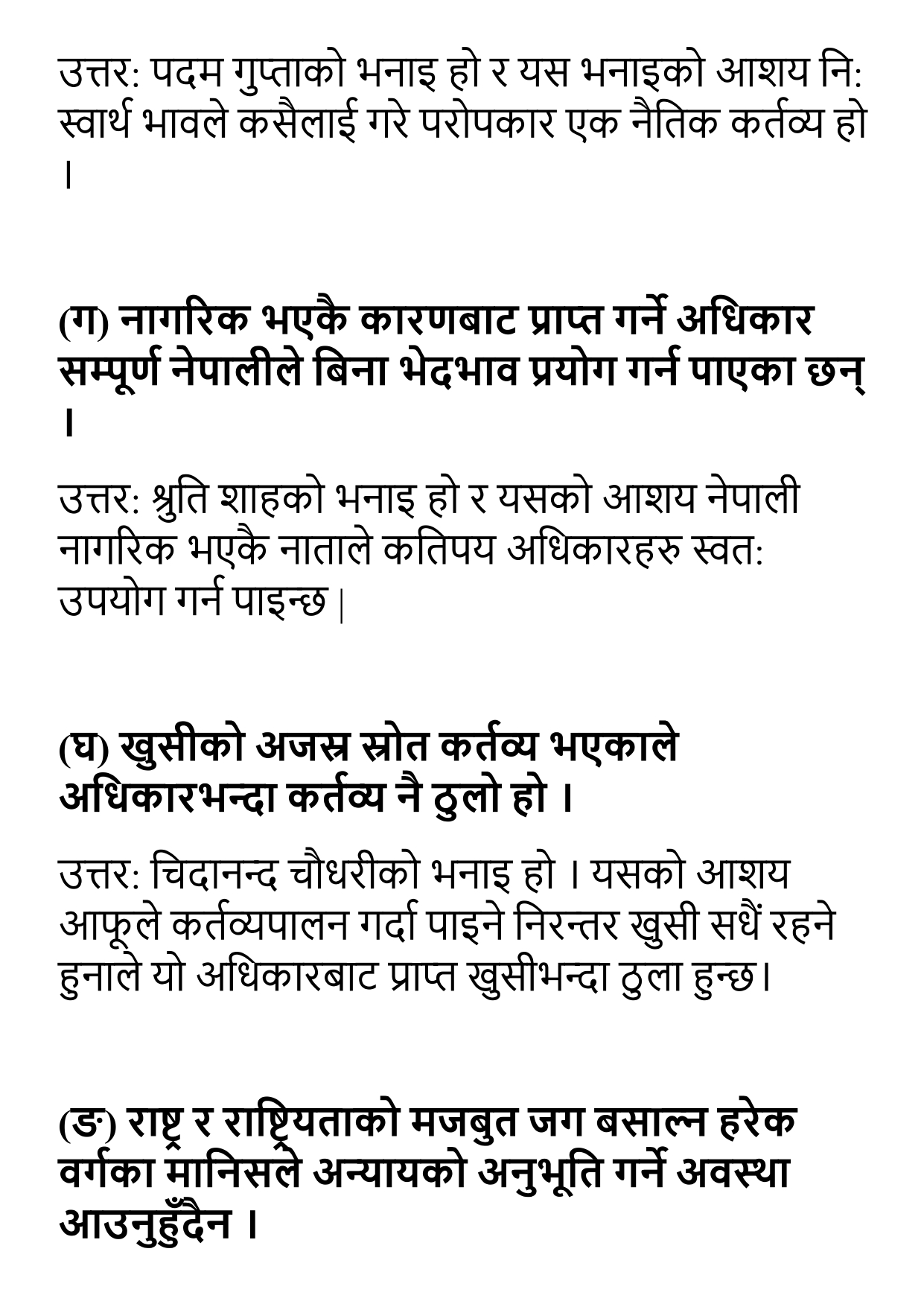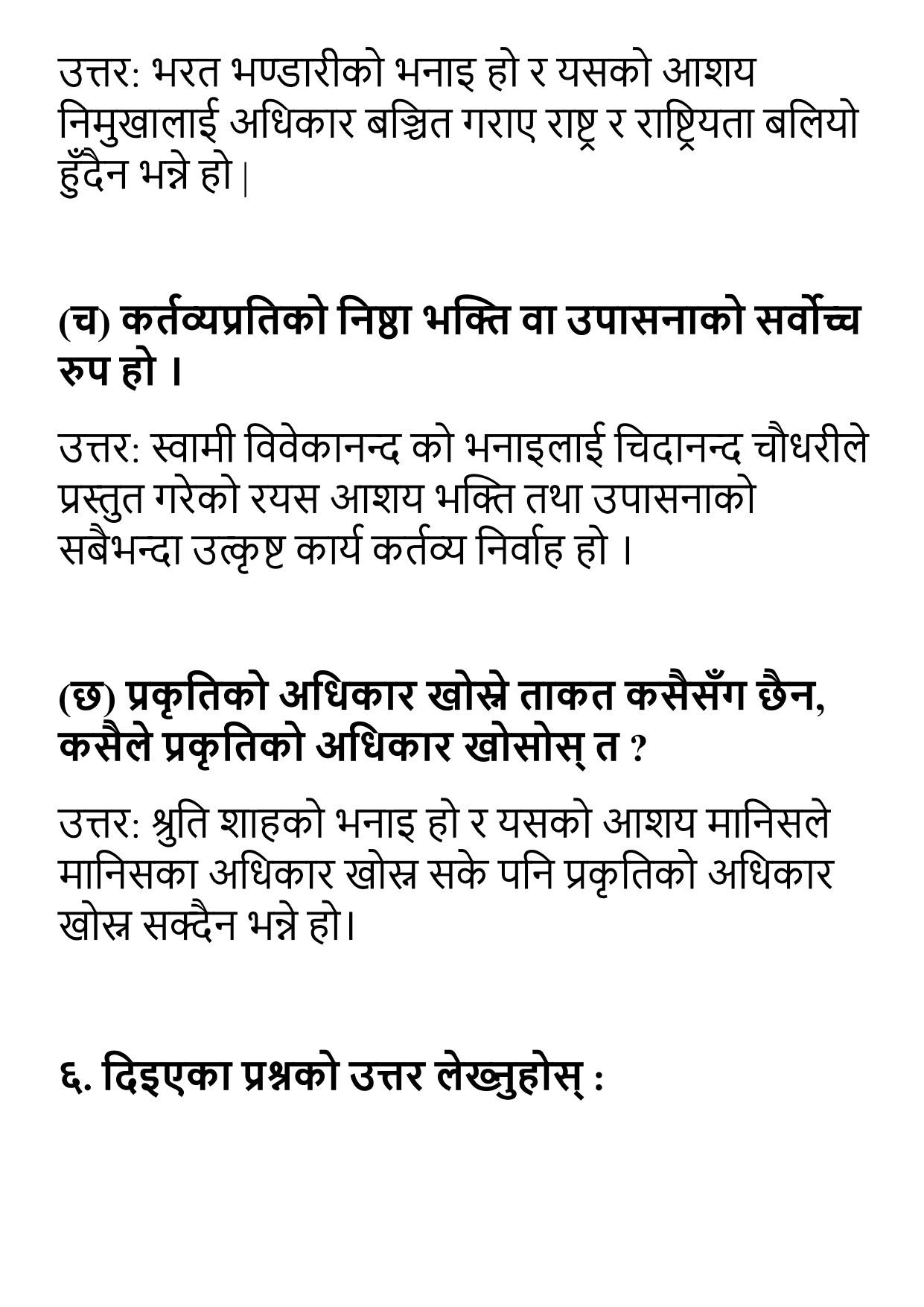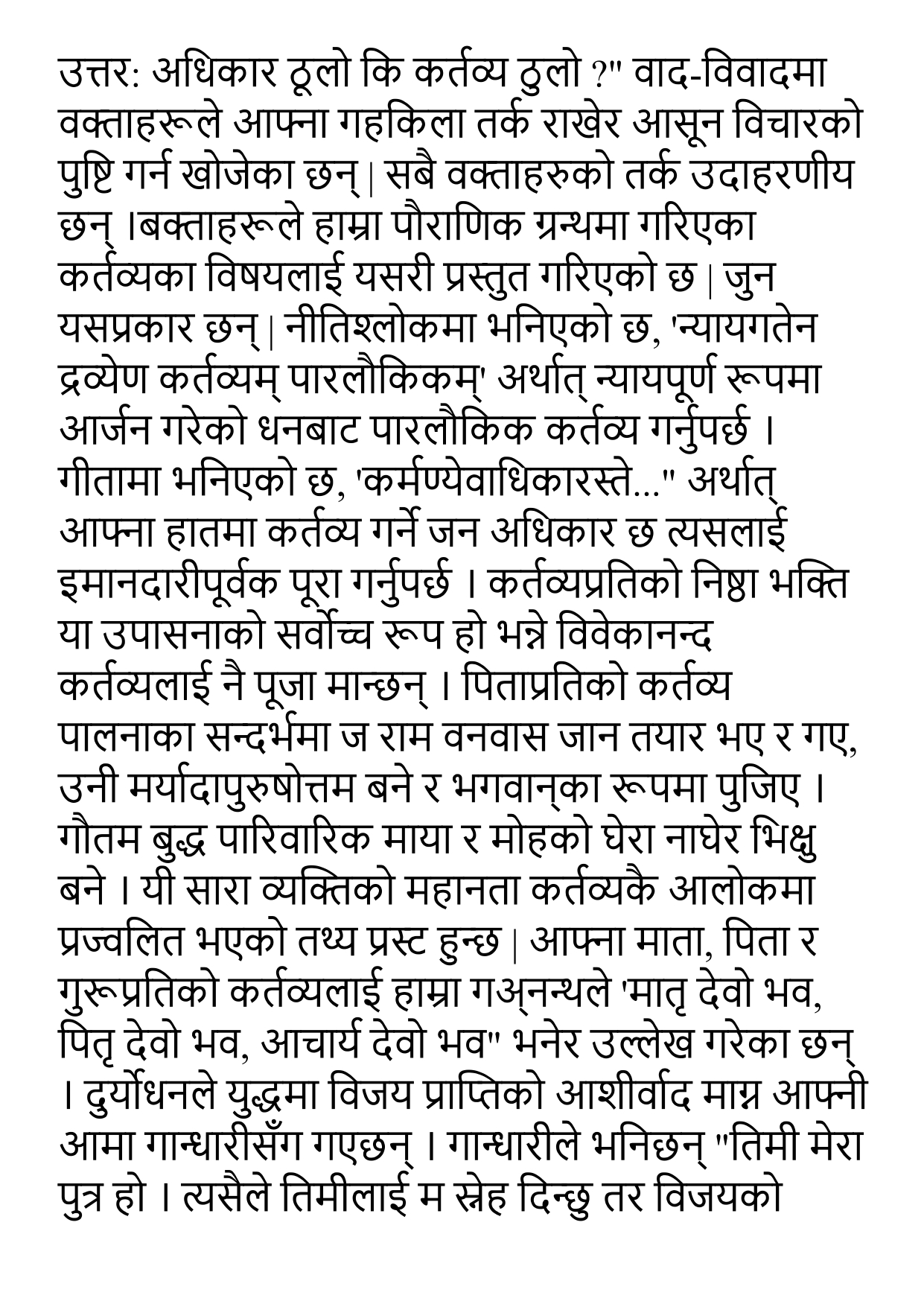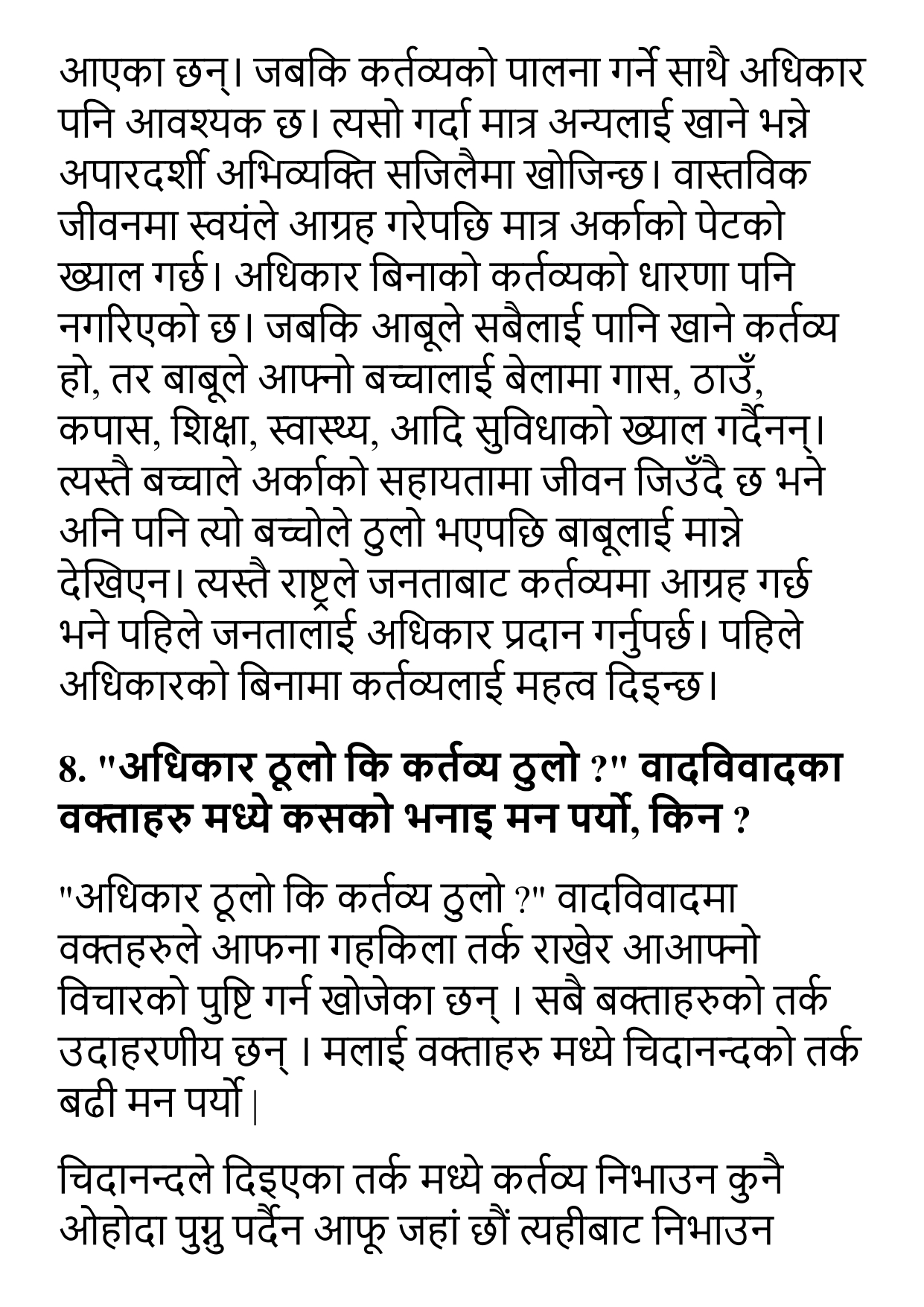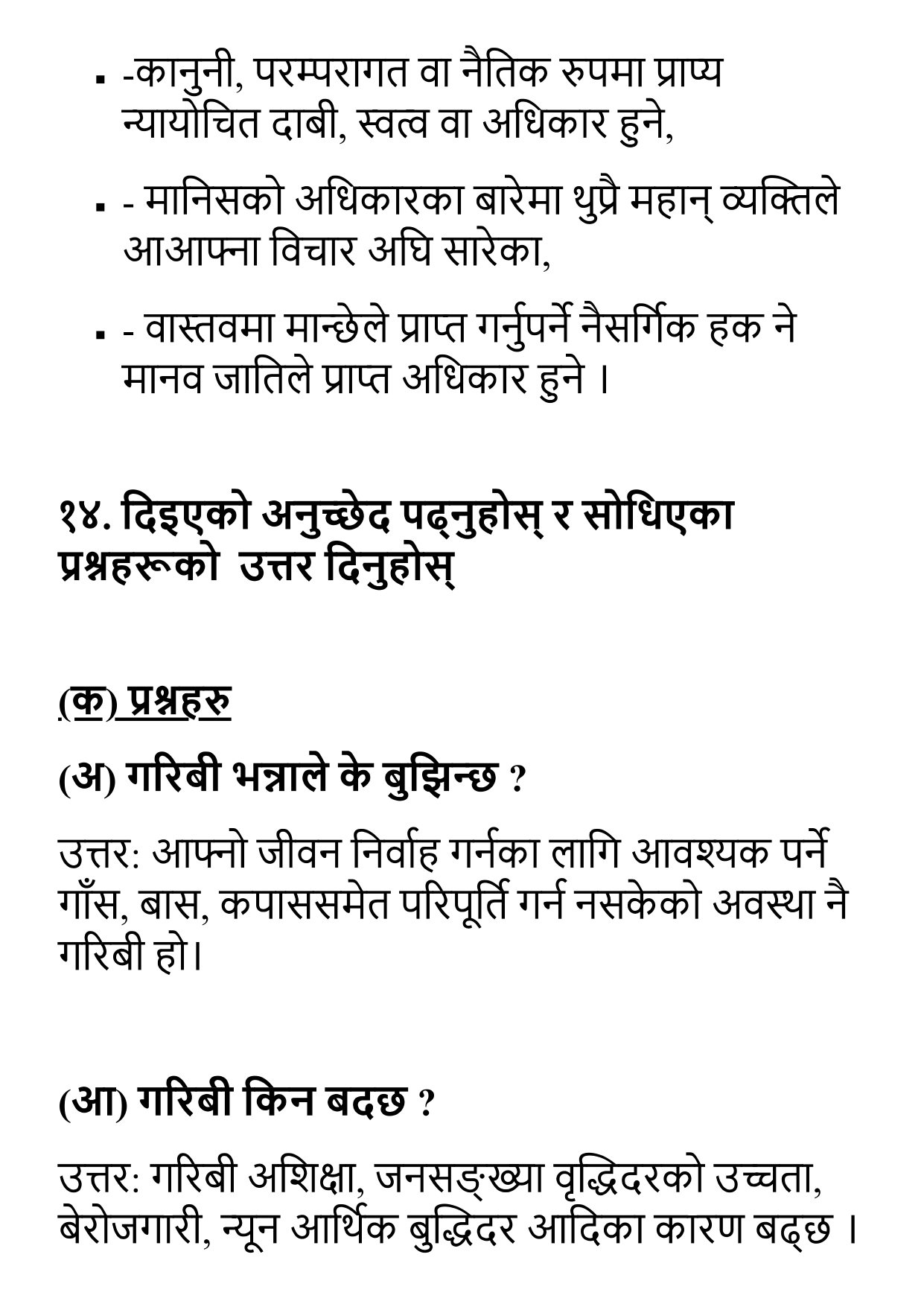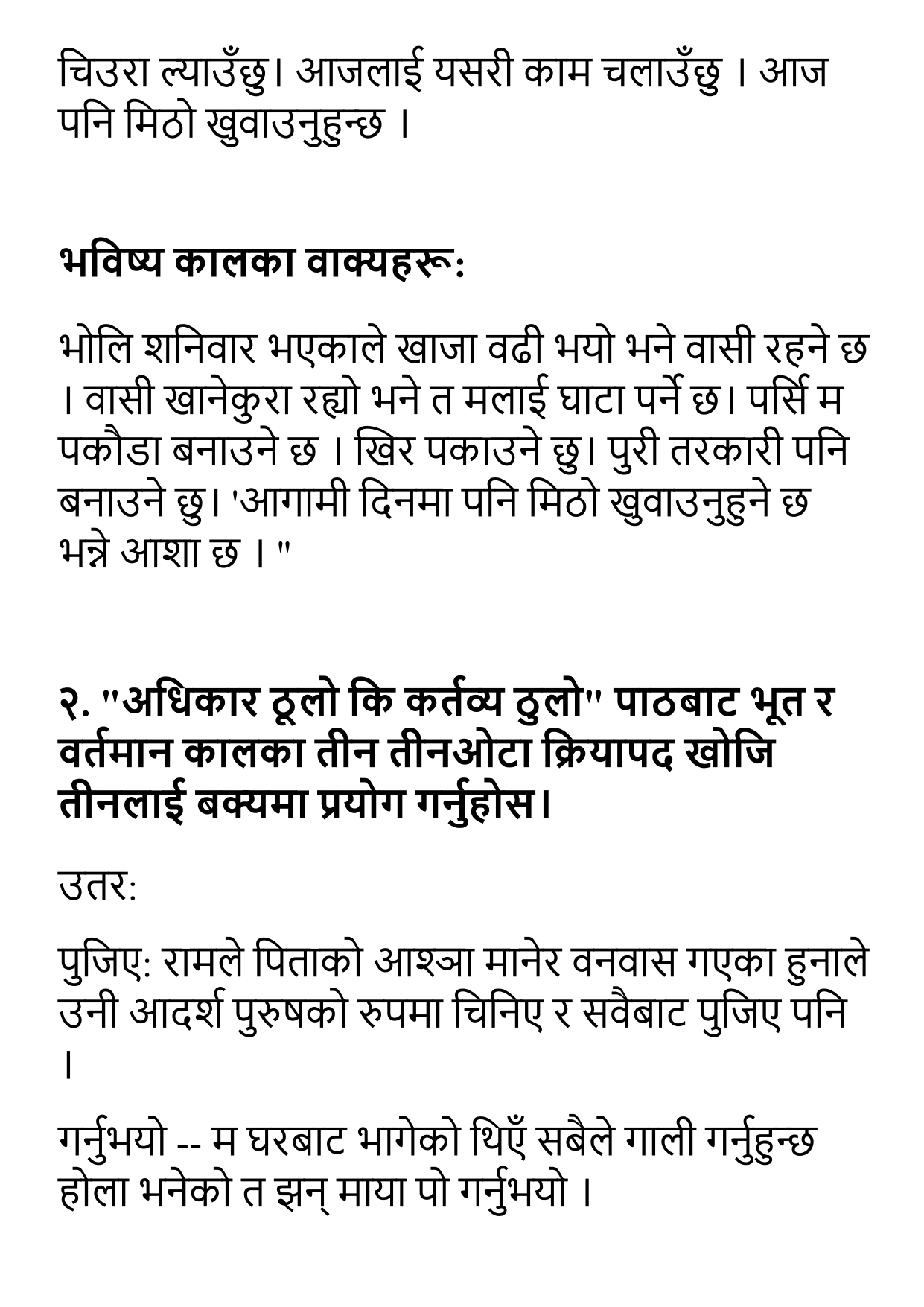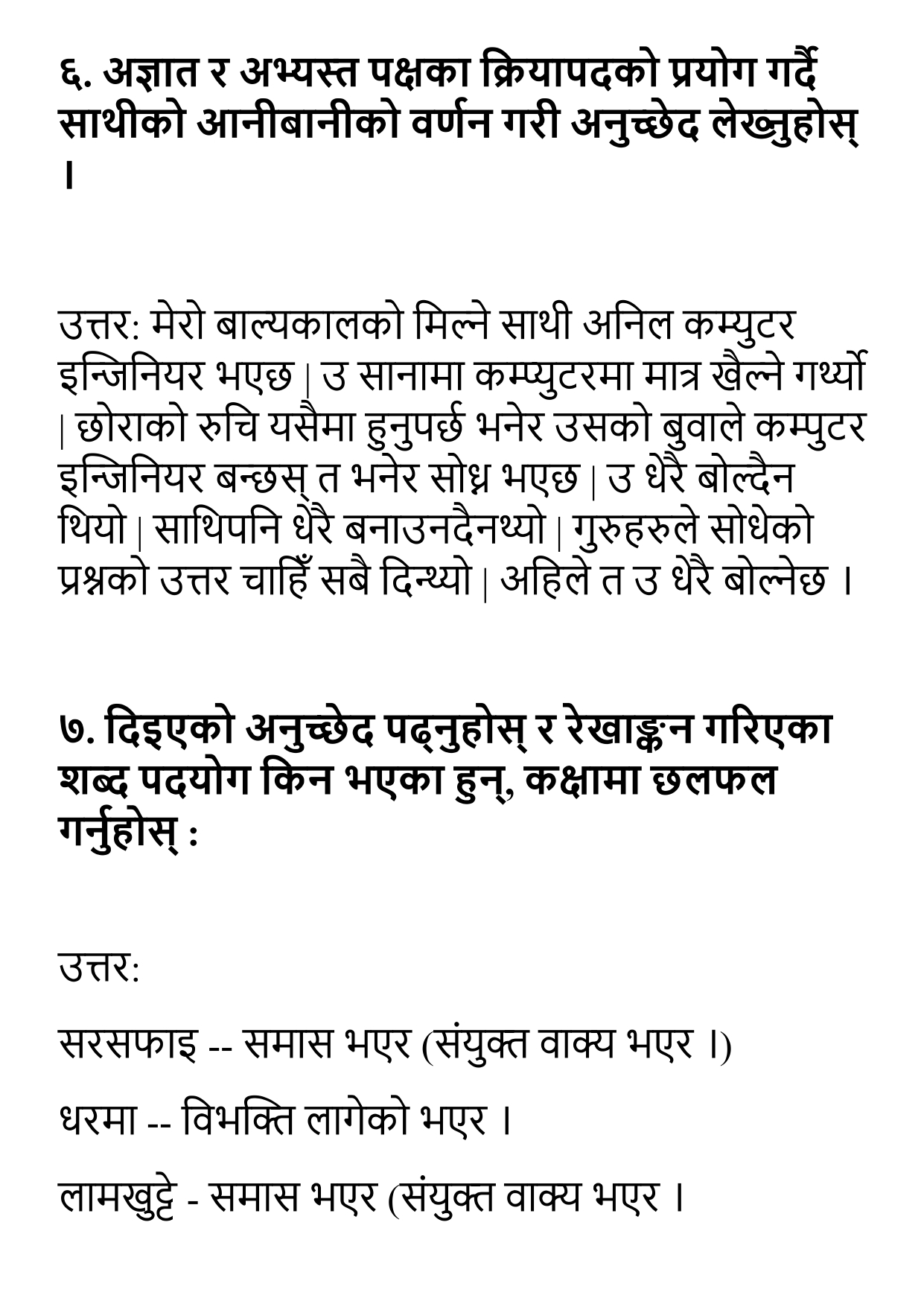Unit 6: Adhikar thulo ke Kartabya thulo
Complete Exercise (Question Answer Solution), Grammar and Summary of Class 10 Nepali Chapter 6 Adhikar Thulo ke Kartabya Thulo. CDC update course content for the year 2080 for class 10 Nepali.
Adhikar Thulo ke Kartabya Thulo is a Bibad (debate), Written by Class 10 Nepali Book (edition:2080) Writer / Authors.
About Adhikar Thulo ke Kartabya Thulo
Adhikar Thulo ke Kartabya Thulo is a debate. The debate between duty and rights revolves around differing perspectives on the path to success and moral righteousness versus the importance of protecting individual freedoms and enabling personal and societal development.
Unit 6: Adhikar Thulo ke Kartabya Thulo Exercise
Adhikar Thulo ke Kartabya Thulo - Class 10 Nepali Chapter 6 Complete Guide
Adhikar Thulo ke Kartabya Thulo Summary
In the discussion on the topic of "Adhikar Thulo ke Kartabya Thulo" (Rights versus Duties), different individuals hold varying perspectives. Chidanand Chaudhary believes that duty holds great importance. According to him, performing good deeds with honestly earned wealth brings positive outcomes. Several renowned figures, such as Vivekananda and Lord Wyron, have emphasized the significance of duty in leading a fulfilling life. Choudhary argues that neglecting duty leads to failure, while its fulfillment leads to success. Duties, such as keeping the house clean or teachers and staff fulfilling their responsibilities, contribute to the prosperity of society.
On the other hand, Bharat Bhandari asserts that rights surpass duties in importance. He connects rights with humanity, freedom, and justice, considering them fundamental to human existence. Bhandari highlights how movements and struggles around the world, including those in Nepal, have been fought for the rights of individuals. He believes that fulfilling rights is a prerequisite for fulfilling duties.
Padam Gupta shares the view that duty is greater than right. Drawing from religious texts and scriptures, Gupta argues that duty holds a significant place in society. He exemplifies individuals who have demonstrated unwavering devotion to duty, such as Shravan Kumar and Yudhishthira. Gupta distinguishes between moral and legal duties, emphasizing the importance of both types. He stresses the need for individuals to fulfill their obligations towards charity, protecting the environment, and upholding laws.
Contrasting these viewpoints, Shruti Sah asserts that rights are greater than duty. Sah argues that rights safeguard human freedom and contribute to the overall development of individuals. She emphasizes the rights of children to proper upbringing, education, health, and opportunities for business and employment. Sah references historical struggles, such as the American War of Independence and movements for human rights, as examples of how fighting for rights leads to prosperity and societal change.
In conclusion, the topic of "Adhikar Thulo ke Kartabya Thulo" elicits diverse opinions. While some argue for the primacy of duty, others emphasize the significance of rights. Each perspective carries its own reasoning, drawing from ethics, scriptures, historical events, and societal implications. Ultimately, finding a balance between rights and duties is essential for the overall progress and well-being of individuals and society.
Adhikar Thulo ke Kartabya Thulo Mul Bhab
Complete Nepali Summary, Mul Bhab of Class 10 Nepali Unit 2 is given as:
Audio Summary: Adhikar Thulo ke Kartabya Thulo
Adhikar Thulo ke Kartabya Thulo (Debate) FAQs
What is the importance of rights?
Rights are essential for individuals as they provide fundamental freedoms and protect their dignity. They enable individuals to live a life of autonomy, ensuring access to education, healthcare, and the ability to express their opinions freely.
Why are duties important in society?
Duties play a crucial role in maintaining social order and harmony. They promote a sense of responsibility towards others and the community, ensuring that individuals contribute to the well-being and progress of society.
What happens when rights and duties conflict?
Conflicts between rights and duties can arise, leading to ethical dilemmas. It requires careful consideration and balancing to ensure that individual rights are respected while fulfilling societal duties and responsibilities.
How can a balance between rights and duties be achieved?
A balance between rights and duties can be achieved by recognizing the interdependence between the two. It involves promoting and protecting individual rights while also emphasizing the importance of fulfilling obligations towards others and society.
Read More:
Keywords
- Class 10 Nepali Unit 6 Adhikar Thulo ke Kartabya Thulo Exercise, Question Answer Solution
- Importance of Rights and Duties, Conflicts between Rights and Duties, Achieving Balance between Rights and Duties
Credit: Youtube Video

